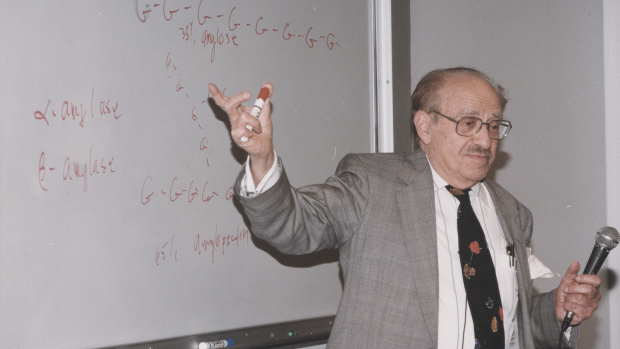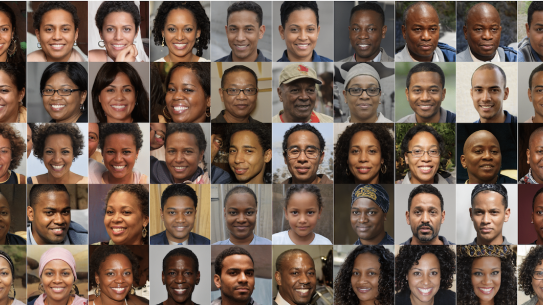Raising a toast to Joseph Owades, the inventor of light beer

Joseph Owades at an Alumni Leadership Seminar in 1999.
If you’ve ever enjoyed an ice-cold light beer on a hot summer day, you owe thanks to an NYU Tandon alum, Joseph L. Owades.
Born on New York City’s Lower East Side, Owades (‘44, ‘50) graduated from City College before pursuing graduate studies in biochemistry at what was then known as Polytechnic Institute. While still a doctoral student, he began his career as a research chemist at Fleischmann's Yeast, and in 1951 he made what turned out to be a fateful move, accepting a job at Rheingold, a Brooklyn-based brewery that produced one of the most popular beers on the regional market.
At Rheingold, Owades researched yeasts and malt starches, and in the process he discovered an enzyme (amyloglucosidase) that allowed yeast to digest bloat-producing starch. Seizing on that discovery, in 1967 the brewery began producing a “diet beer” with fewer calories and no residual carbohydrates. Initially, the brew, marketed under the name Gablinger’s to distance it from the company’s flagship product, was far from a commercial success. However, after the Miller Brewing Company stepped in and reintroduced it nationally as Miller Lite in 1975, its popularity exploded wildly, and the advertising tagline “Tastes great, less filling” became an inescapable part of the cultural zeitgeist.
Later in life, Owades went on to found and direct the Center for Brewing Studies in Sonoma, California, where several winemakers came calling to offer him jobs; he always refused, however, asserting that winemaking was too simple a process to require a biochemist – unlike brewing beer with its complex comingling of yeast, hops and malt.
Owades went on to, literally, “write the book” on light beer when he drafted the section on beer and the metabolism of alcohol in the Encyclopedia of Food Science and Technology. He also went on to hold 25 patents and consult with various breweries, including the makers of Sam Adams Lager. So influential did he become in the industry that when he died in 2005, many tributes referred to him as “the godfather of the brewing industry.'"
The next generation of brewery byproducts
Owades wasn’t the only beer innovator in Tandon history. When she was still a graduate student, Bertha Jimenez (‘16) found out that after breweries processed grain to make beer, they were left with a semisolid substance that might have potential uses in commercial bakeries. She subsequently arranged with a group of microbreweries in Brooklyn to make regular pick-ups of their spent grain, which would otherwise end up in landfills, and set up a makeshift production facility to process it in her apartment. The result was a protein-filled flour with a nutty flavor prized by local bakers and a start-up company, RISE Products, that helps others upcycle organic waste material into useful products.
Vodka from thin air?
Cocktail fans can also enjoy the fruits of Tandon’s intrepid spirit. AIR COMPANY, a Brooklyn-based startup, is collaborating with Miguel Modestino, director of NYU Tandon's Sustainable Engineering Initiative (SEI), to develop new applications for its AIRMADE™ technology, which uses a process similar to photosynthesis to convert CO2 into high-performance fuels and chemicals. While they’ve now set their sights on developing sustainable rocket fuel for NASA, an earlier product was somewhat more down-to-earth (and decidedly tastier): AIR Vodka, the world’s first carbon-negative alcoholic spirit.






